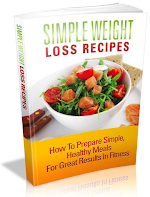Post-Workout Nutrition for Weight Loss: Optimal Plate Plan
Discover the key to effective weight loss with our comprehensive guide on post-workout nutrition. Maximize results with expert tips & insights.
 |
| Optimizing Your Post-Workout Plate: A Nutrient-Rich Path to Weight Loss Success |
Optimizing nutrition after a workout is not only crucial for muscle recovery and growth but can also play a significant role in achieving weight loss goals. Post-workout nutrition serves as a vital component of any fitness regimen, particularly for individuals aiming to shed excess pounds. By strategically replenishing the body with essential nutrients following exercise, one can enhance metabolism, promote fat loss, and support overall fitness progress. Understanding the principles of post-workout nutrition tailored for weight loss can empower individuals to maximize their workout efforts and achieve their desired physique more efficiently. This article delves into the science behind post-workout nutrition for weight loss, offering practical insights and strategies to optimize recovery while pursuing fitness and weight management goals.
The Crucial Role of Post-Workout Nutrition in Weight Loss Journey
When embarking on a weight loss journey, the focus often falls on the exercise routine and the number of calories burned during a workout. While exercise is undeniably essential for weight management, the post-workout period is equally crucial.
Post-workout nutrition plays a pivotal role in optimizing recovery, supporting muscle growth, and enhancing overall performance. It acts as a cornerstone in achieving weight loss goals by ensuring that the body receives the necessary nutrients to repair and rebuild muscle tissues, replenish energy stores, and promote metabolic adaptations that facilitate fat loss.
The Intricate Dance Between Exercise and Nutrition in Body Transformation
The human body is an intricately designed machine that responds to physical activity with remarkable precision. When we engage in exercise, especially high-intensity or resistance training workouts, our muscles experience micro-tears as they work against resistance or perform endurance activities.
This process triggers an adaptive response where the muscles grow stronger and more resilient to future challenges. However, this repair and growth process cannot occur optimally without adequate nutrition post-exercise.
Post-workout nutrition provides the building blocks — amino acids from proteins, energy from carbohydrates, and essential nutrients from fats — required for muscle repair, glycogen replenishment, hormone regulation, and overall recovery. By understanding how our bodies respond to exercise stimuli and acknowledging the critical role of post-workout nutrition in this intricate dance between exertion and nourishment, individuals can harness the power of optimal nutrient timing to accelerate their progress toward weight loss goals.
Protein: Building Blocks for Muscle Repair and Growth
Protein plays a pivotal role in post-workout nutrition as it provides the essential building blocks necessary for muscle repair and growth after a strenuous exercise session. When you engage in physical activity, particularly resistance training, micro-tears occur in your muscle fibers. Consuming protein post-workout gives your body the amino acids it needs to repair these tears and promote muscle hypertrophy, leading to increased strength and lean muscle mass.
For optimal recovery and weight loss benefits, experts recommend consuming around 20-30 grams of high-quality protein within 30 minutes to an hour after your workout. Sources of high-quality protein include lean meats like chicken or turkey, fish, eggs, dairy products such as Greek yogurt or cottage cheese, legumes like chickpeas and lentils, as well as plant-based options like tofu or tempeh.
Carbohydrates: Fueling Glycogen Stores for Energy Restoration
Carbohydrates are vital for replenishing glycogen stores depleted during exercise, especially intense or prolonged workouts. Consuming carbohydrates post-workout helps restore these energy reserves in your muscles and liver, aiding in faster recovery and improved performance during subsequent training sessions.
When selecting carbohydrates for post-workout consumption, opt for complex carbs such as whole grains (brown rice, quinoa), starchy vegetables (sweet potatoes, squash), fruits (berries, bananas), and legumes. These sources provide sustained energy release due to their fiber content and nutrient density.
Timing is crucial when it comes to carbohydrate intake after a workout – aim to consume them within 45 minutes to two hours post-exercise based on the intensity and duration of your session. Quantity-wise, aim for a ratio of approximately 3:1 or 4:1 carbohydrates to protein for optimal recovery.
Fats: Essential Nutrients Supporting Health & Weight Loss
While often overlooked in post-workout nutrition discussions focused on proteins and carbohydrates, fats play a crucial role in supporting overall health and weight loss goals. Healthy fats are essential.
for nutrient absorption (fat-soluble vitamins) hormone production maintaining cellular integrity and satiety levels, and helping you feel full longer which can aid in weight management.
Incorporating good fats into your post-workout meals or snacks can provide sustained energy release and support various bodily functions Omega-3 fatty acids found in oily fish flaxseeds chia seeds walnuts
avocados are excellent sources of healthy fats that can be easily included in your diet To optimize your fat intake choose mono-unsaturated polyunsaturated fats saturated ones opting for nuts seeds olive oil salmon trout instead of processed trans-fats found in baked goods fast food Restricting unhealthy types of fats while focusing on nutrient-dense options can enhance recovery process promote overall well-being while assisting achieving weight loss goals
Hydration Strategies Post-Workout
The Significance of Hydration in Aiding Recovery and Weight Loss Efforts
Proper hydration is paramount for optimal post-workout recovery and weight loss. When you exercise, your body loses fluids through sweat, which can lead to dehydration if not replenished adequately. Dehydration impairs muscle recovery, reduces exercise performance, and hinders fat loss.
Staying hydrated after a workout ensures that your body can effectively transport nutrients to muscles, remove waste products, and maintain metabolic functions crucial for weight loss. Additionally, adequate hydration supports thermoregulation, helping your body regulate its temperature during exercise and aiding in calorie expenditure.
Electrolyte Replenishment After Exercise
Electrolytes are essential minerals like sodium, potassium, calcium, and magnesium that are crucial in muscle function and fluid balance. During intense exercise, electrolytes are lost through sweat along with fluids.
Replenishing these electrolytes post-workout is vital to prevent muscle cramps, maintain proper hydration levels, and support overall recovery. Including electrolyte-rich foods or beverages such as coconut water or sports drinks can help restore the electrolyte balance in your body after a strenuous workout.
Tips on Staying Adequately Hydrated Throughout the Day
Apart from post-workout hydration, it's essential to maintain optimal fluid intake throughout the day for overall health and weight loss benefits. Some helpful tips include carrying a reusable water bottle with you everywhere as a reminder to drink regularly. Monitoring urine color can also be a simple way to gauge hydration levels; light yellow indicates adequate hydration while dark yellow may signal dehydration.
Consuming hydrating foods like fruits and vegetables high in water content can contribute to your daily fluid intake goals. Additionally, spacing out water consumption evenly throughout the day rather than chugging large amounts at once helps ensure consistent hydration levels.
Supplements for Post-Workout Recovery and Weight Loss Support
Creatine: The Powerhouse Supplement
Creatine is a naturally occurring compound found in our muscle cells, playing a crucial role in supplying energy during high-intensity activities like weightlifting or sprinting. As a popular supplement for athletes and fitness enthusiasts, creatine offers numerous benefits for post-workout recovery and weight loss. By increasing the availability of adenosine triphosphate (ATP) - the energy currency of cells - creatine enhances muscle performance, allowing for more intense workouts that can stimulate greater fat loss.
It is recommended to consume 3-5 grams of creatine monohydrate post-workout to maximize its benefits. Timing considerations suggest taking creatine alongside carbohydrates or protein to enhance absorption and utilization by muscle cells.
BCAAs: Building Blocks of Recovery
Branched-chain amino acids (BCAAs) consist of three essential amino acids - leucine, isoleucine, and valine - known for their ability to promote muscle protein synthesis, reduce muscle breakdown, and aid in recovery post-exercise. These crucial amino acids can help preserve lean muscle mass while promoting fat loss during periods of caloric deficit.
Consuming BCAAs post-workout can accelerate the repair and rebuilding of damaged muscle tissues, ultimately supporting weight loss goals by maintaining metabolic rate and enhancing overall body composition. Incorporating BCAAs into your post-workout nutrition regimen can be particularly beneficial when engaging in endurance or resistance training.
Whey Protein: The Golden Standard
Whey protein is revered as a superior protein source due to its high biological value, rapid digestion rate, and rich amino acid profile essential for muscle repair and growth. Following a workout session, consuming whey protein can expedite recovery by supplying the necessary building blocks needed to repair damaged muscle fibers efficiently.
Moreover, whey protein stimulates the release of anabolic hormones like insulin-like growth factor 1 (IGF-1), promoting an environment conducive to fat loss while preserving lean body mass. Opting for whey protein isolate or hydrolysate post-exercise ensures quick absorption and utilization by muscles, making it an ideal choice for individuals aiming to optimize recovery and support weight loss efforts effectively.
Timing Considerations for Post-Workout Nutrition
Window of Opportunity: The Swift Embrace of Nutrients
Pre-and-Post Workout Meal Examples Tailored for Success
Crafting well-rounded meals that cater to your post-workout needs is essential for achieving optimal results in weight loss and overall fitness. For pre-workout fueling, consider a combination of easily digestible carbohydrates paired with a moderate amount of protein about an hour before your session.
Post-exercise, aim to refuel with a protein-rich snack such as Greek yogurt with berries or a turkey sandwich on whole-grain bread. Including a source of carbohydrates like sweet potatoes or quinoa alongside some healthy fats like avocado can further support recovery and muscle repair.
What is the best post-workout meal for weight loss?
Determining the best post-workout meal for weight loss entails a nuanced understanding of the body's nutritional needs after exercise, as well as the overarching goals of the individual. While there is no one-size-fits-all answer, certain principles can guide the selection of optimal post-workout nutrition to support weight loss endeavors effectively. First and foremost, it's essential to prioritize protein intake. Protein plays a crucial role in muscle repair and growth, which is particularly important after a workout session that may have induced muscle breakdown. By consuming protein-rich foods or supplements within the post-workout window, typically within 30 minutes to an hour after exercise, individuals can support muscle recovery and promote lean muscle mass development. Sources of protein may include lean meats like chicken or turkey, fish, eggs, dairy products such as Greek yogurt or cottage cheese, legumes, tofu, or protein shakes. Incorporating a sufficient amount of protein into the post-workout meal can help individuals feel satiated, maintain muscle mass, and support their weight loss efforts by boosting metabolism through the thermic effect of food.
In addition to protein, carbohydrates play a crucial role in replenishing glycogen stores, which serve as the body's primary energy source during exercise. While low-carb diets have gained popularity in certain circles for weight loss, it's essential to strike a balance when considering post-workout nutrition. Consuming carbohydrates after a workout helps replenish glycogen levels, which may have been depleted during intense exercise sessions. Opting for complex carbohydrates with a low glycemic index, such as whole grains, fruits, and vegetables, can provide sustained energy without causing rapid spikes in blood sugar levels. This balanced approach to carbohydrate intake not only supports recovery and performance but also helps regulate hunger and cravings, ultimately contributing to more sustainable weight loss outcomes.
Moreover, including healthy fats in the post-workout meal can further enhance its satiety and nutritional value. While fats are more calorie-dense compared to protein and carbohydrates, they play a crucial role in hormone production, nutrient absorption, and overall health. Incorporating sources of healthy fats, such as avocados, nuts, seeds, and olive oil, into the post-workout meal can help promote feelings of fullness and satisfaction, reducing the likelihood of overeating later in the day. Additionally, consuming omega-3 fatty acids found in fatty fish like salmon or walnuts may have anti-inflammatory benefits, which can support recovery from intense exercise and aid in weight loss efforts.
Furthermore, hydration is often overlooked but is a critical aspect of post-workout nutrition for weight loss. Sweating during exercise leads to fluid loss, which can impair performance, hinder recovery, and even mask dehydration-induced hunger cues. Rehydrating with water or electrolyte-rich beverages post-workout helps replenish lost fluids, supports nutrient transport and absorption, and promotes optimal metabolic function. Adequate hydration is essential for maintaining energy levels, optimizing exercise performance, and facilitating fat loss by supporting metabolic processes.
What is the nutrient timing for post-workout?
Nutrient timing for post-workout nutrition is a strategic approach to optimize the body's recovery and adaptation to exercise by consuming specific nutrients at specific times. Understanding the timing of nutrient intake after a workout session is crucial for maximizing the benefits of exercise, supporting muscle repair and growth, replenishing energy stores, and facilitating recovery.
The post-workout period, often referred to as the "anabolic window" or "metabolic window," is a critical timeframe during which the body is primed to absorb and utilize nutrients most efficiently. It's commonly believed that consuming a balanced meal or snack containing protein, carbohydrates, and some healthy fats within 30 minutes to an hour after exercise can enhance muscle protein synthesis, glycogen replenishment, and overall recovery.
This window of opportunity is characterized by increased blood flow to the muscles, heightened insulin sensitivity, and elevated nutrient uptake, all of which contribute to enhanced nutrient partitioning and utilization. Protein consumption during this period provides the essential amino acids necessary for muscle repair and growth, while carbohydrates replenish glycogen stores and support energy recovery. Including some healthy fats in the post-workout meal can further enhance nutrient absorption and satiety.
However, it's important to note that the concept of an "anabolic window" may vary depending on individual factors such as the intensity and duration of exercise, overall diet composition, and personal fitness goals. While immediate post-workout nutrition is beneficial for maximizing recovery and adaptation, the overall nutrient intake throughout the day remains paramount for achieving optimal performance, body composition, and long-term health. Thus, while timing is important, consistency and balance in nutrient intake should be prioritized to support sustained progress and overall well-being.
Conclusion
In the intricate dance of post-workout nutrition for weight loss, timing plays a symphonic role in orchestrating success. By embracing the golden opportunity presented by the immediate aftermath of exercise to nourish your body with purposeful nutrients tailored to your needs, you pave the way for enhanced recovery and progress toward your wellness goals.
Remember, each meal is not just sustenance but an investment in yourself – fuel wisely and witness the transformative power it holds. Trust in the process, embrace consistency and let each carefully crafted bite propel you closer towards vitality and strength.
___________________________________________________________
___________________________________________________________________________
👇
ـــــــــــــــــــــــــــــــــــــــــــــــــــــــــــــــــــــــــــــــــــــــــــــــــــــــــــــــ
ـــــــــــــــــــــــــــــــــــــــــــــــــــــــــــــــــــــــــــــــــــــــــــــــــــــــــــــــ
ــــــــــــــــــــــــــــــــــــــــــــــــــــــــــــــــــــــــــــــــــــــــــــــــــــــــــــــ
GET YOUR CUSTOM
DIET PLAN
👇
ـــــــــــــــــــــــــــــــــــــــــــــــــــــــــــــــــــــــــــــــــــــــــــــــــــــــــــــــ
ـــــــــــــــــــــــــــــــــــــــــــــــــــــــــــــــــــــــــــــــــــــــــــــ
________________________________________________
👇
ـــــــــــــــــــــــــــــــــــــــــــــــــــــــــــــــــــــــــــــــــــــــــــــــــــــــــــــــــــــــــــــــــــــــ
Ancient Japanese Discovery Melts 54 LBS Of Fat
The Custom Keto Diet | Your Personal Keto Custom Plan
Keto Diet, Supercharged with AI!
Nature's Secret for Healthy Blood Sugar. Weight Loss
The Delicious Smoothie Diet: 21 Day Rapid Weight Loss Program
Powerful New Formula To Support Healthy Weight Loss
The Secret For Healthy Weight Loss
Healthy Weight Loss As Pure As Nature Intended



.png)
.png)
.png)
.png)
.png)
1.png)

















0 Comments